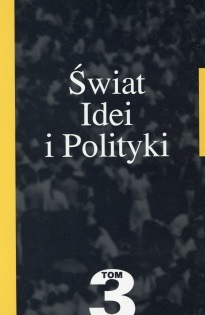Idea zrównoważonego rozwoju w dokumentach końcowych Szczytów Ziemi w Rio de Janeiro i Johannersburgu
DOI:
https://doi.org/10.34767/SIIP.2003.03.06Abstrakt
The process of civilization and cultural development at growing ecological crisis requires pro-ecological comprehensive changes in all spheres of public life. Their base should become an idea defined as “balanced development” whose essence is aspiration for harmonizing social and economic spheres of man’s life with nature. The result of the harmony comprehended in this way may influence the quality of life increasing its natural and cultural values and steering it towards justice within species, generations, and regions.The balanced development include transformations in economy, society, technique and space, all aiming at securing welfare for the present and future generations, as well as durability and variety of nature including each aspect of human life. All the processes may take place due to securing a demanded quality of environment and people’s health, nature conservation, understanding pro-ecological trends in politics and economy including rational using of natural resources (renewable and nonrenewable). The mentioned above issues in the context of the balanced development idea arc quoted by signatories of final documents at the Earth Summits in Rio de Janeiro and Johannesburg.The paper presents an outline of methods of realising and achieving aims in spheres of society, politics, economy, and nature - according to the idea of balanced development included in the Declaration from Rio on Environment and Development (the Earth Charter). the Global Program of Action - Agenda 21, Political Declaration of Johannesburg on the Balanced Development, and the Scheme of Action pointing at fighting against poverty not destroying natural resources of the Earth.

